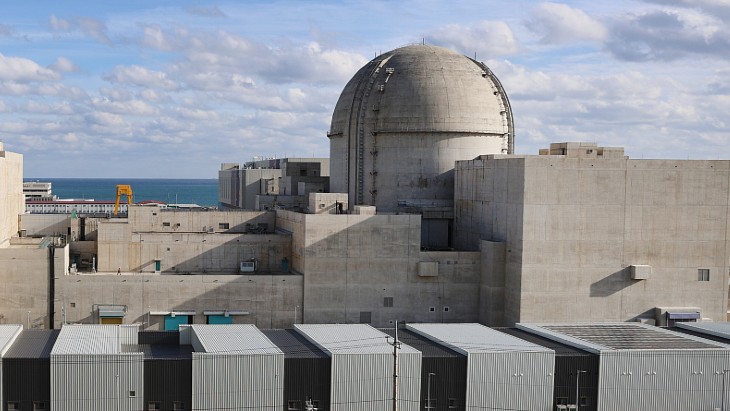Nuclear energy may play a role in meeting Spain's aim of putting one million electric cars on its roads by 2014, said Miguel Sebastian, minister of industry tourism and commerce, as he publicly backed nuclear power.
Sebastian was talking to the national radio station Ondra Cero. His comments on nuclear power came as part of a discussion of the reduction of speed limits in the country from 120 km/h to 110 km/h, which he said would reduce fuel consumption by 3%.
"Three percent is a huge energy saving," said the minister, "What other energy saving measure will save us 3% of petroleum? Nuclear power plants do not contribute to any saving in petroleum because there are no nuclear cars... I believe we should take energy saving measures, because we as a country are strongly dependent on imported energy ... if anyone can come up with another measure to reduce our commercial energy deficit, which is 4% of our mix, come out and say it."
The interviewer responded that one measure could be "not to declare yourself anti-nuclear and not to be against the atom, which for other countries has guaranteed a lot less dependence on the outside with regard to energy."
Sebastian replied: "This government is not an anti-nuclear government. In fact, it has kept the whole nuclear park open."
He continued, "What is indeed evident is that cars are not going to run on nuclear energy. To this day, cars require petroleum. This has been the government that has done the most towards electric vehicles. In that case, nuclear energy will be useful as a source of electricity for cars."
Nevertheless, Sebastian stressed to Reuters last week that no new nuclear power reactors will be constructed in Spain. He noted that Spanish energy consumption per head was 20% above the European average. "Saving 20% would be the equivalent of doubling the number of nuclear power plants. It seems easier and cheaper to me," he said.
Nuclear plant lives
In mid-February the Spanish government ratified a law removing the mention of 40 years in relation to the operating lifetimes of nuclear power reactors. The government will now determine nuclear's share in Spanish generation and also the lifetimes of existing nuclear plants based on a variety of considerations including regulatory requirements for nuclear safety and radiological protection as advised by the Spanish nuclear regulator, plus trends in demand, the development of new technologies, security of supply, costs of electricity production and greenhouse gas emissions.
Previous legislation assumed a 40-year operating life as default, colouring ministerial actions on license renewal applications for older plants.
In an earlier interview on 22 February on Spanish Radio and Television Corporation (Corporación de Radio y Televisión Española, RTVE), Sebastian said that nuclear plants are "essential for the supply of electricity in Spain" and that almost all nuclear power units "will be open, operating and even repowering" until 2021. "We have made that very clear," he added.
He said that when each plant reaches 40 years of operation, "the government will decide after listening to the Nuclear Safety Council (CSN)." If the CSN says "no", the decision is binding and the plant will close, he explained. Otherwise, if he says "yes", "the current government will take the decision it deems appropriate in terms of economic and environmental criteria."
Researched and written
by World Nuclear News




_72306.jpg)


_49562.jpg)





